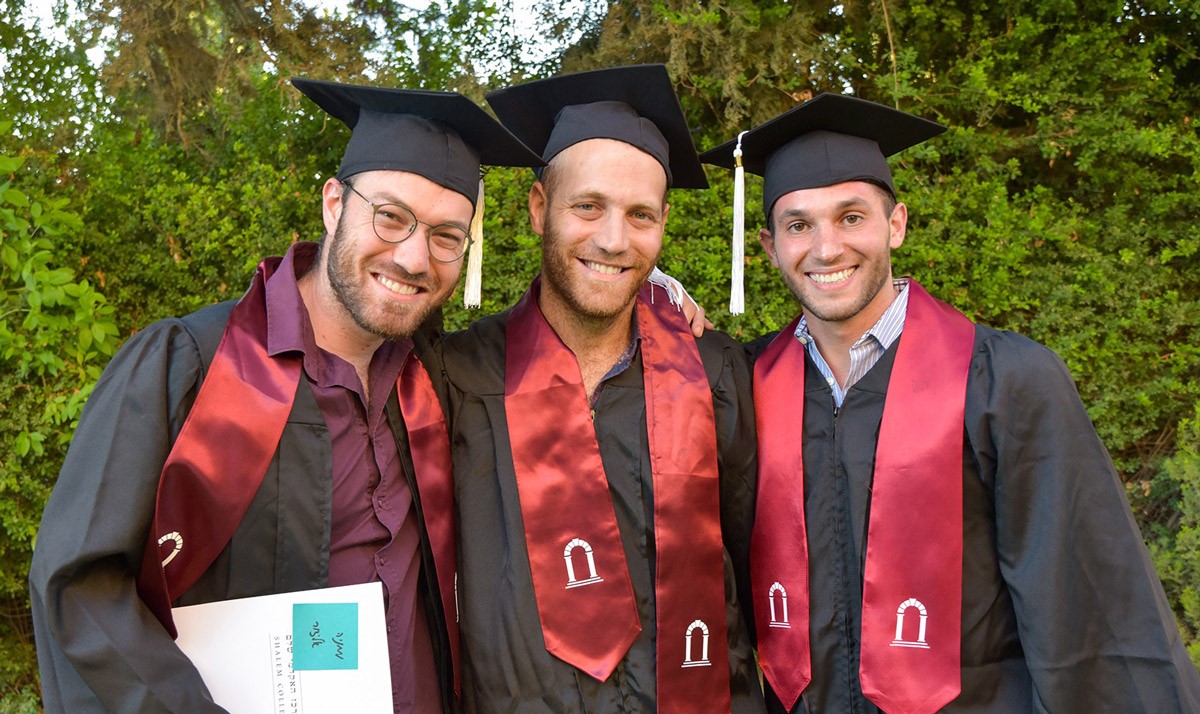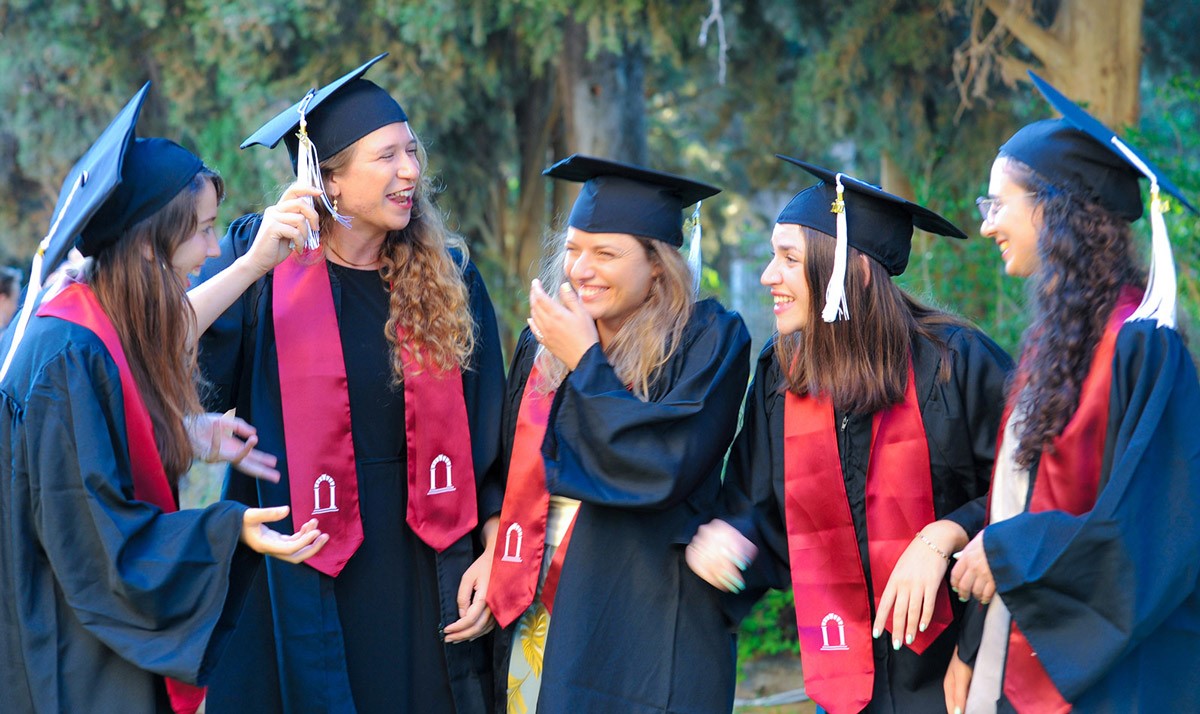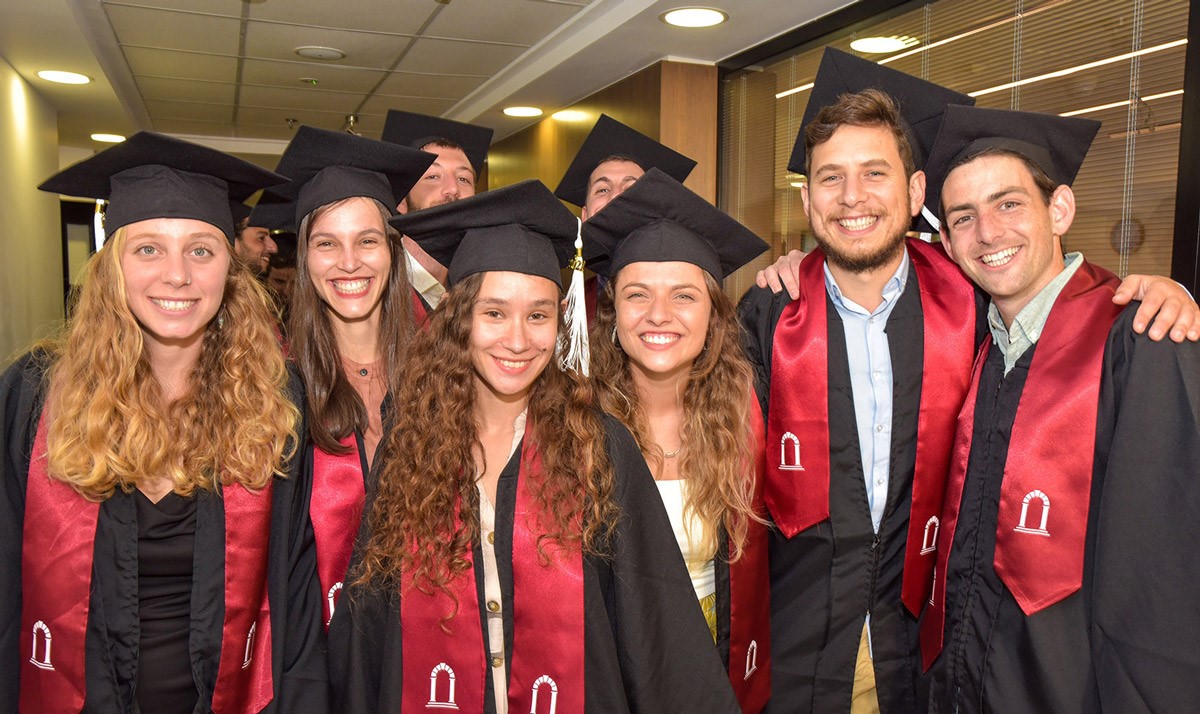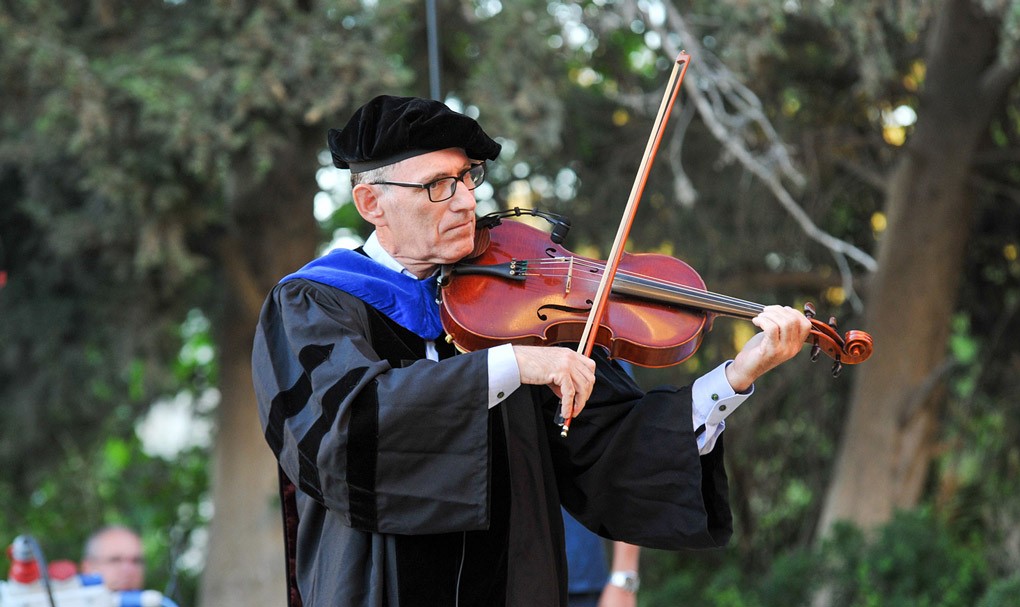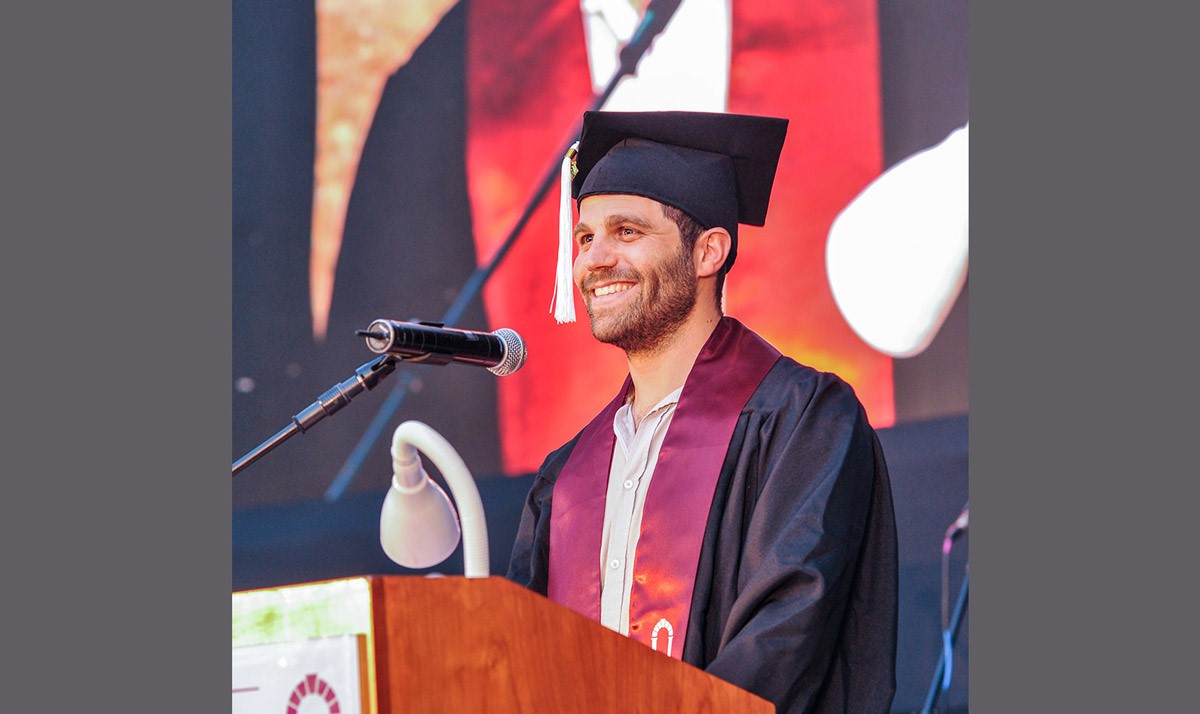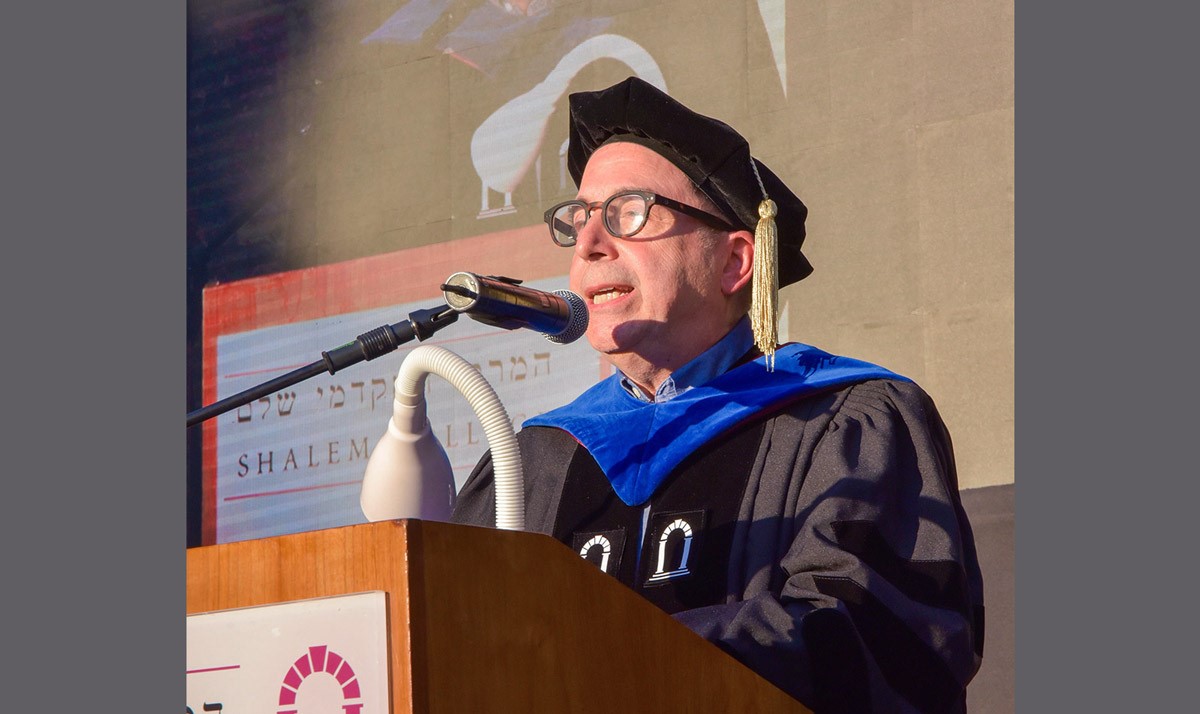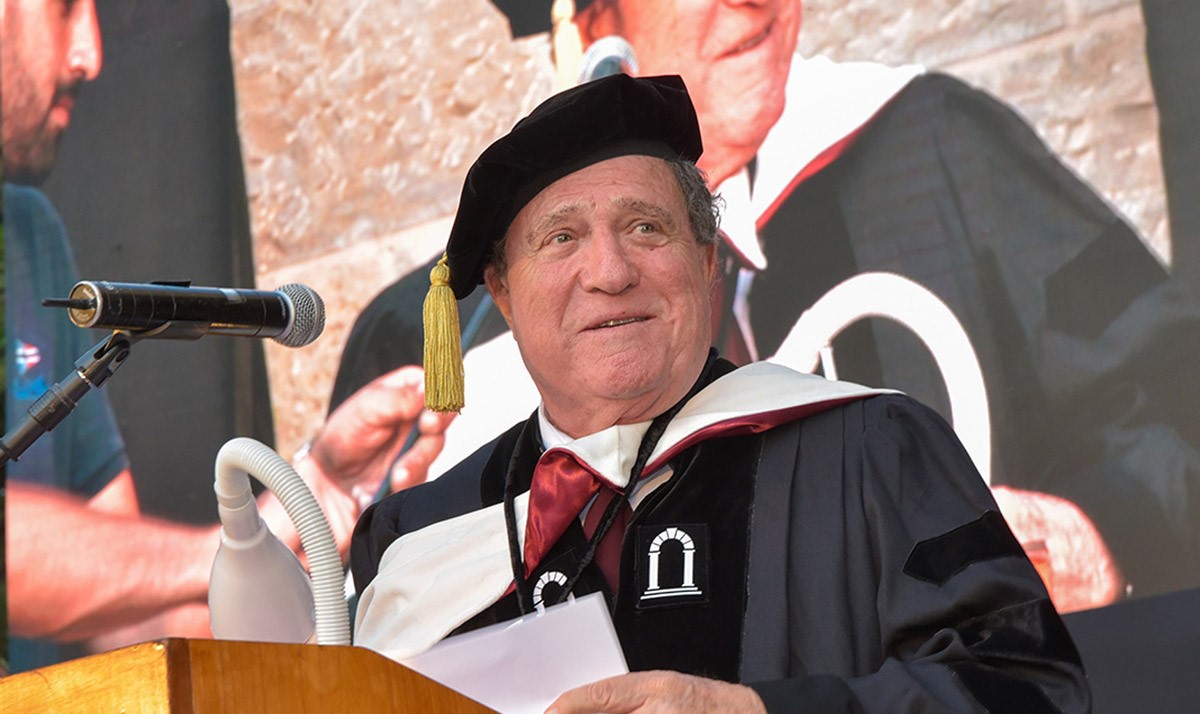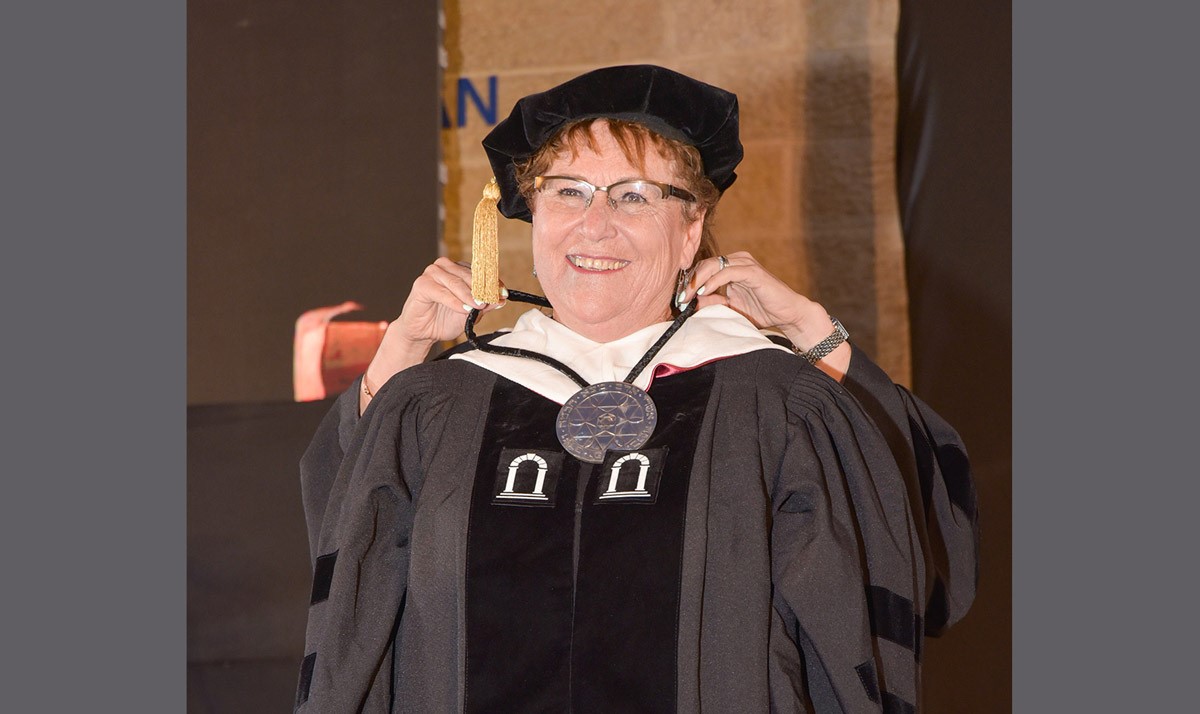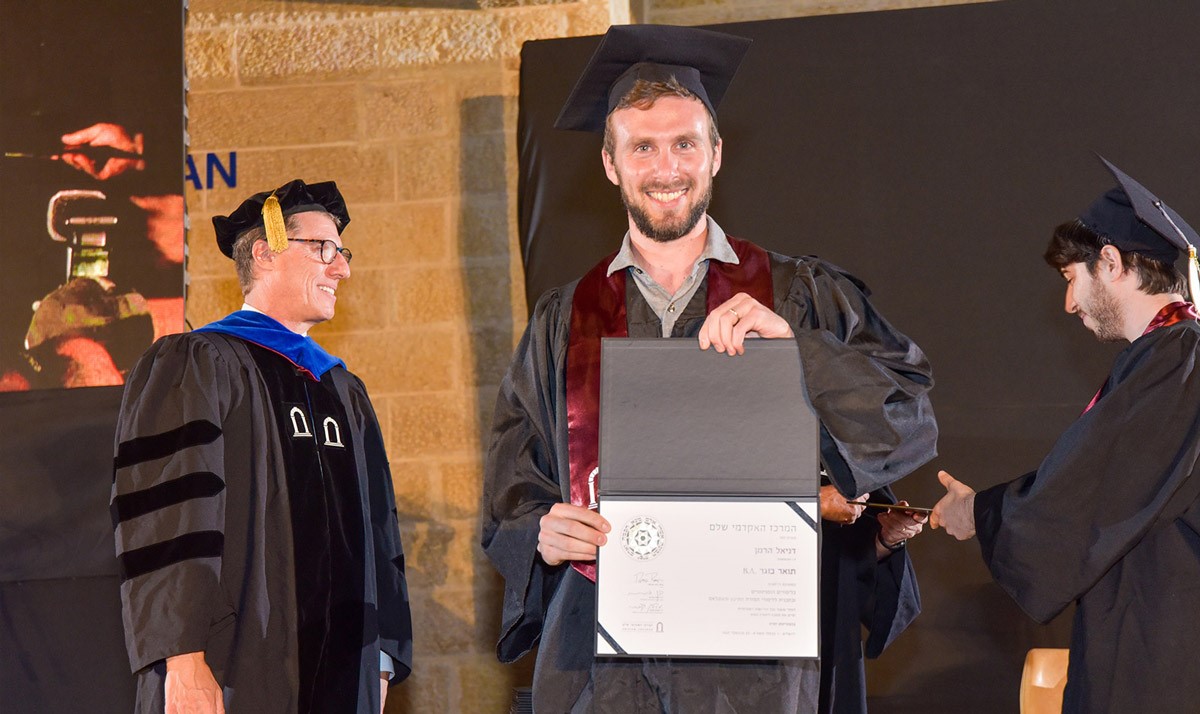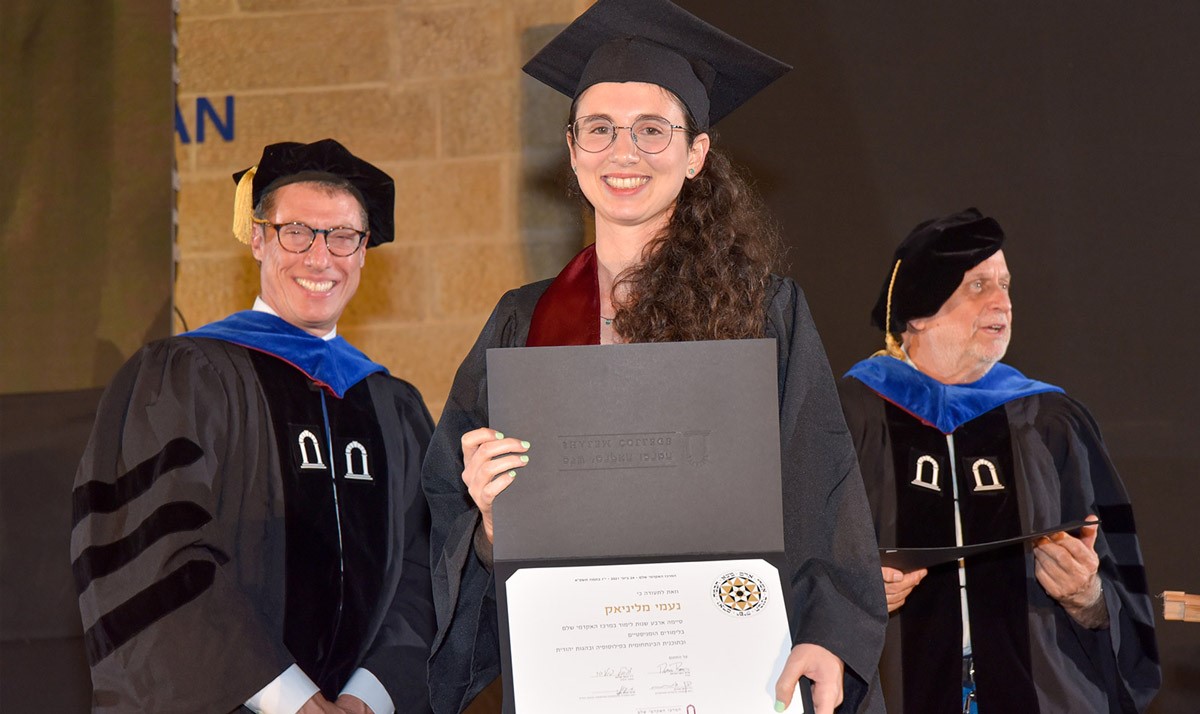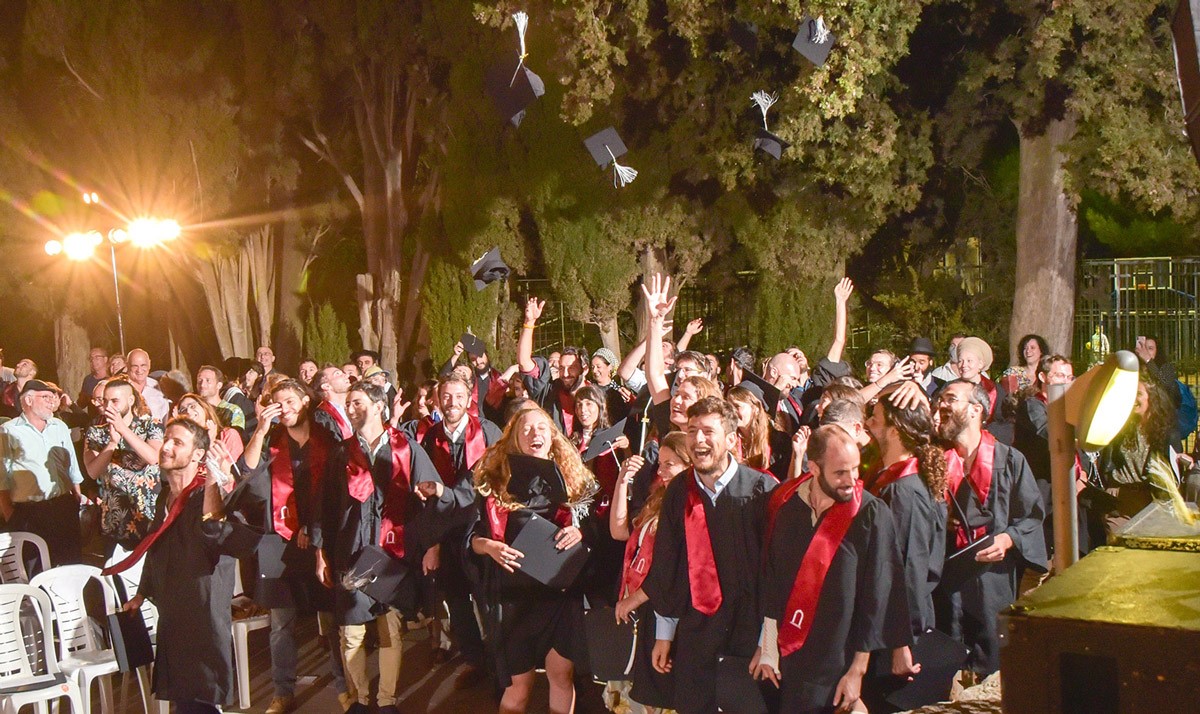Answering the Call of Duty: Shalem Celebrates the Classes of 2020 and 2021
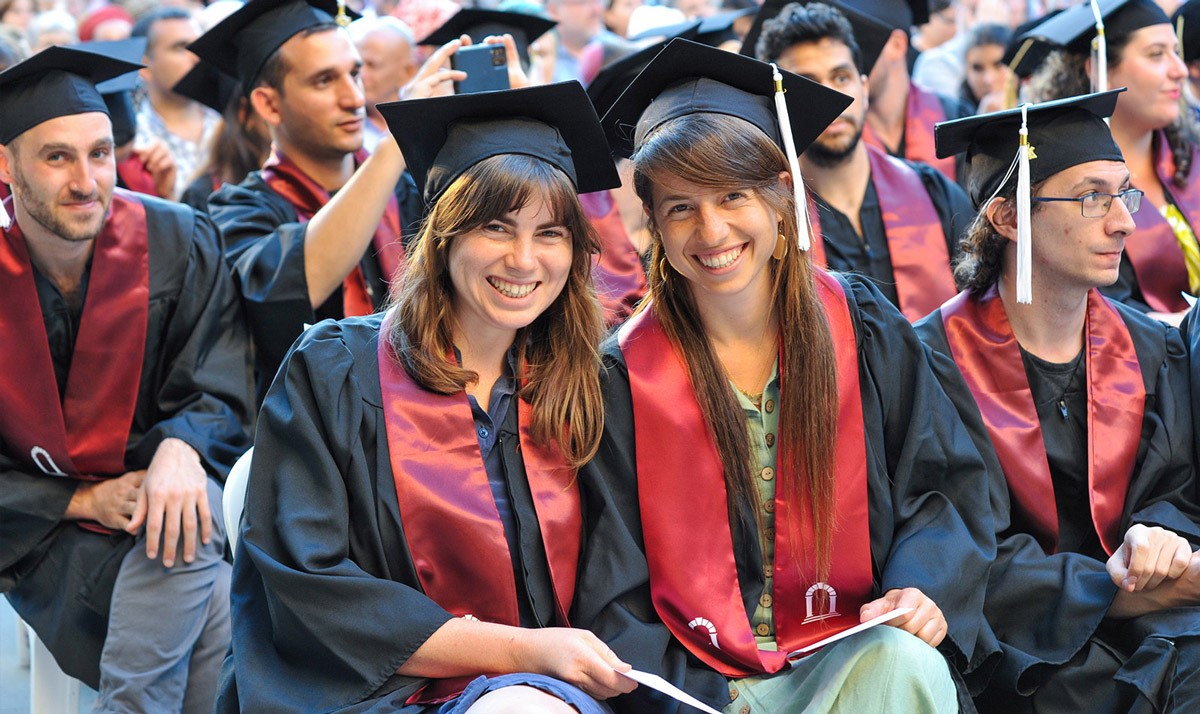
When accepting her honorary degree at the fifth Shalem College Commencement on June 24th, Miriam Peretz, the educator, public speaker, and Israel Prize winner, noted how fitting was the student choir’s choice of songs for the ceremony. “Hineini Kan” (“Here I am”), the iconic ode to Jerusalem made famous by singer, actor, public figure, Israel Prize winner, and fellow honorary degree recipient Yehoram Gaon, takes as its title, she pointed out, the classic Israeli declaration of intent to answer the call of duty. This was the mantra by which her sons Uriel and Eliraz, decorated soldiers who both fell during their service in the Israeli Defense Forces, lived their lives. And it is also, she explained, the guiding principle of Shalem students, who have chosen to study at a college dedicated to service and citizenship.
Indeed, among the two graduating classes at this year’s ceremony—a doubleheader resulting from the postponement of last year’s ceremony on account of COVID-19—there were numerous graduates who embodied the “Hineini Kan” spirit: There is, for example, a senior advisor to the minister of development for the Negev, and the director of innovation for an organization building a high-tech ecosystem to advance the socio-economic reality in Israel’s northern periphery. Several graduates will lead pre-military preparatory academies for Israel’s most elite young citizens, and several others have positions in Israel’s security apparatus, where they will use both their high-level Arabic and their nuanced knowledge of the region to advance Israel’s security interests. A significant number will also continue their studies—whether full time or alongside professional pursuits—in some of Israel’s top graduate programs.
This year, however, the theme of answering a calling was not just limited to the graduating classes. It also applied to new Shalem College President Russ Roberts, whose participation in the commencement marked just his second week since moving to Israel. Addressing the new graduates and their families, Roberts, the economist, writer, John and Jean De Nault Research Fellow at Stanford University’s Hoover Institution, and founder of the award-winning podcast EconTalk, described the decision to take up the position as head of Israel’s first liberal arts college.
“Some of my friends said it would be a huge mistake,” he conceded. “But other told me it was an easy choice, given my love for the Jewish people and Israel, and my passion for the kind of education that we focus on here at Shalem: an unflinching respect for conversations about the great ideas, texts, and questions of Western and Jewish thought. In English,” he concluded, “we call it a ‘calling.’ And after I met with the faculty, students, staff, and all the rest of the Shalem leadership team, Shalem did indeed call to me.”
In his citation for Yehoram Gaon, lecturer of Arabic and director of Shalem’s Arabic Studies Program Dr. Arik Sadan encouraged graduates to look to Gaon as a model of how to bring about the this change. “The force that motivated Yehoram Gaon to seek peaceful relations between Arabs and Jews; to call for the inclusion of the ultra-Orthodox sector as an integral part of Israeli society; to raise awareness of the beauty of Mizrahi (Eastern) Jewish tradition and its contribution to Israeli culture; and to advocate for soldiers, autistic children, cancer patients, and many, many more groups in our state, does not come from anger, disappointment, or contempt, and certainly not from cynicism. Rather,” explained Sadan, “It comes from love, faith, and belief in our shared ability to create a better reality.”
Gaon himself expressed his sense that “nothing could be more flattering” for someone who loves his country as he does to receive a medal of honor from an institution such as Shalem, which insists that the study of Jewish thought is the foundation for a continued existence in the Jewish homeland.
Gila Rockman, Shalem’s director of service and citizenship, added in her citation for Miriam Peretz a reminder of the responsibility that accompanies citizenship in a liberal democracy. “Will you see problems, or will you see possibilities for change? Your education at Shalem… has, I hope, taught you that statehood cannot be taken for granted. And the example of Miriam Peretz, and her presence at your graduation, should be a reminder that you are part of a national narrative, with all the attendant responsibilities and privileges, as much as you are the author of your own personal story,” Rockman said.
For Romi Langer ’21 and Itai Ben Haim ‘20, who represented their classes at the ceremony, it was the essence of the Shalem experience—the study of the great texts themselves—that will provide the basis for graduates’ influence in the Jewish state. “I hope we all succeed in involving others in the kind of conversations we had here: conversations whose goal was the truth, and which sought not to shut out those who did not disagree, but rather derived their strength from all the different voices included therein,” said Langer. “If we can all take this kind of discourse with us out of the classroom and into the world, we will almost certainly be a force for good in Israel.”

